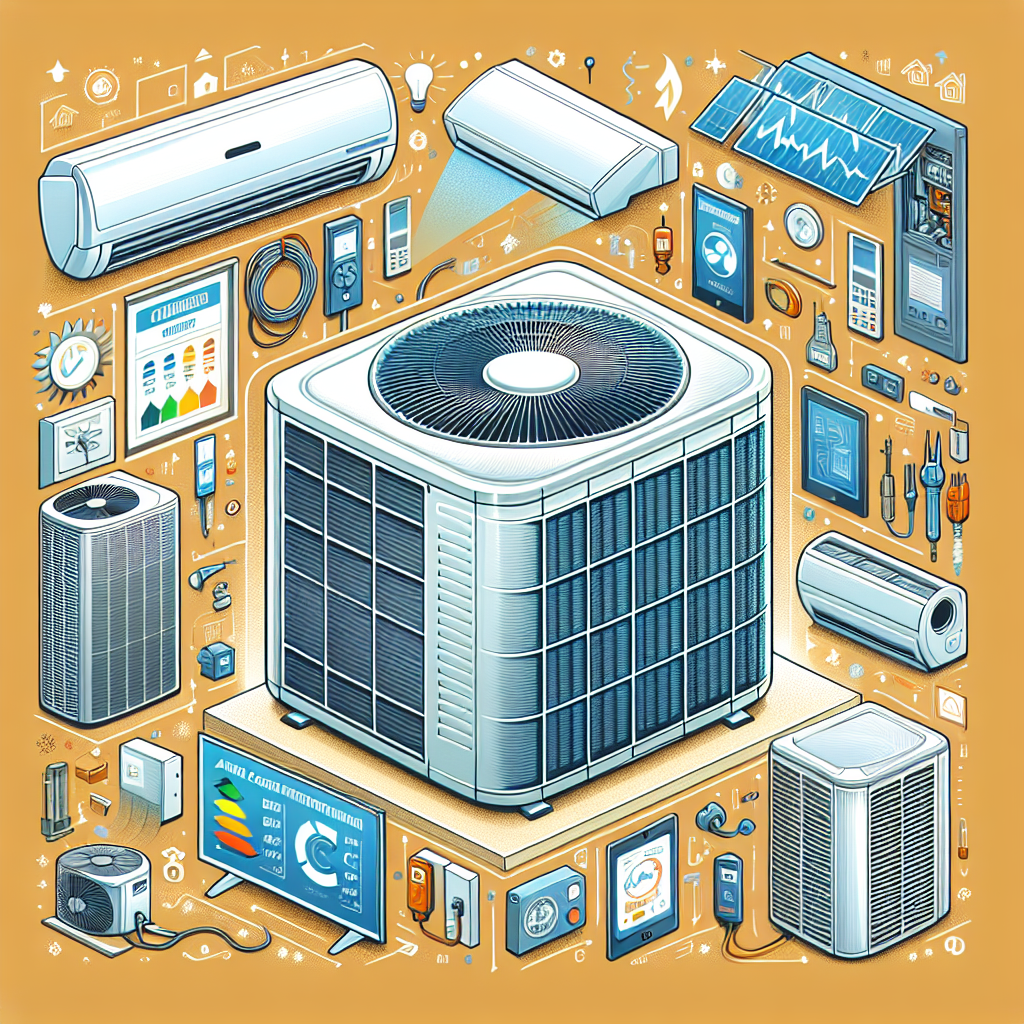Whether you’re enduring the sweltering heat of summer or preparing for unpredictable weather, selecting the right air conditioning (AC) system for your home is essential. An efficient cooling system not only enhances comfort but also promotes energy savings and improves indoor air quality. In this guide, we’ll walk you through the essentials of choosing the right air conditioning system to meet your needs while keeping your wallet happy.
Understanding Different Types of Air Conditioning Systems
Central Air Conditioning
Central air conditioning systems are the most common type for larger homes. They cool the entire house using a system of ducts and vents. A central AC unit is an excellent choice if you want uniform cooling, as it maintains a consistent temperature throughout your living space. Additionally, many modern units feature advanced energy-saving technologies, enabling you to reduce utility bills while keeping your home comfortable.
Ductless Mini-Split Systems
If you don’t have existing ductwork or want to cool specific areas, a ductless mini-split system might be the right solution for you. These systems consist of an outdoor condenser and one or more indoor air-handling units. They’re highly efficient, easy to install, and allow for customized cooling in different rooms. Perfect for homes with add-ons or renovations, ductless systems are versatile and energy-efficient.
Window Air Conditioners
For those on a tight budget or with only a small space to cool, window units are a fantastic option. They’re straightforward to install and are ideal for single rooms or smaller apartments. While they may not provide the same level of cooling as central systems, modern window units offer energy-efficient models that help keep costs down.
Portable Air Conditioners
Similar to window units but more flexible, portable air conditioners can be moved from room to room as needed. These systems are perfect for renters or those not wanting to commit to a permanent installation. Just roll them up to the desired area, connect the exhaust hose, and cool down!
Key Factors to Consider When Choosing an AC System
Size Matters: Get the Right BTU Capacity
The efficiency of an air conditioning system is heavily reliant on its capacity, measured in British Thermal Units (BTU). An undersized AC will struggle to cool your home, wasting energy and resulting in increased wear and tear. Conversely, an oversized unit will cool too quickly, causing humidity issues. Consult with a professional or use an online BTU calculator to determine the appropriate size for your space.
Energy Efficiency: Look for SEER Ratings
When choosing an air conditioning system, consider the Seasonal Energy Efficiency Ratio (SEER). This rating indicates how efficiently an AC unit operates over a typical cooling season. Look for systems with a SEER rating of 14 or higher for optimal energy efficiency. While these units may have a higher upfront cost, they typically pay for themselves in energy savings over time.
Climate and Location
Your geographical location plays a significant role in determining the best air conditioning system for your home. If you live in an area with extreme heat, consider opting for a more robust central air conditioning system. Conversely, if you’re in a milder climate, a ductless or window system may suffice. Additionally, consider local humidity levels as certain systems perform better in humid conditions.
Additional Features to Enhance Your Comfort
Smart Thermostats
Modern AC units can pair with smart thermostats, allowing you to manage your cooling remotely via an app. These programmable features enable you to set schedules and make adjustments based on your lifestyle, ensuring comfort when you’re home while saving energy when you’re away.
Filtration and Air Purification
Quality indoor air is essential for health and comfort. Look for AC systems with built-in air filters or options for air purification. These systems help remove pollutants and allergens, contributing to a healthier living environment.
Budgeting for Your Air Conditioning System
Initial Costs vs. Long-term Savings
When considering an air conditioning system, it’s vital to balance the initial investment with potential long-term savings. Higher efficiency models may seem pricey, but if they reduce energy bills significantly, you’ll find the expense manageable. Always assess your budget against expected energy costs and maintenance needs over the lifespan of the system.
Maintenance Costs
Once installed, your air conditioning system will require periodic maintenance to perform optimally. Factor in maintenance costs when budgeting for your AC system. Regular checks, cleaning, and filter replacements can extend its life and prevent costly repairs down the line.
Conclusion: Make an Informed Decision
Choosing the right air conditioning system involves balancing your cooling needs, budget, and the unique aspects of your home. Whether you opt for a central AC unit, a ductless mini-split, a window unit, or a portable system, the right choice will enhance your comfort and improve energy efficiency.
Take your time to research, consult professionals, and consider all your options. A well-informed decision today can lead to cool summers and cozy winters for years to come!


